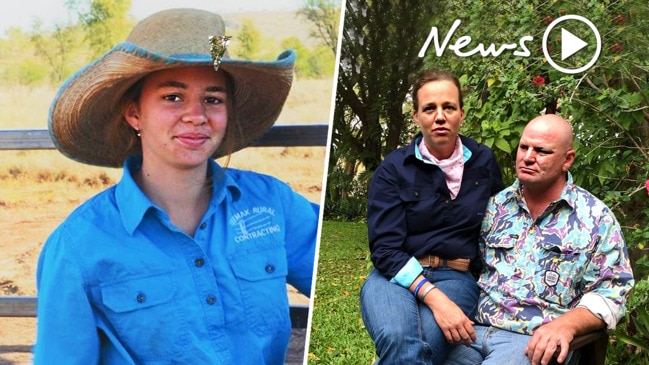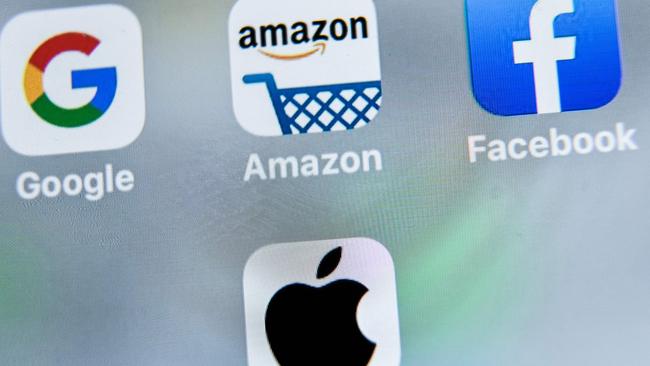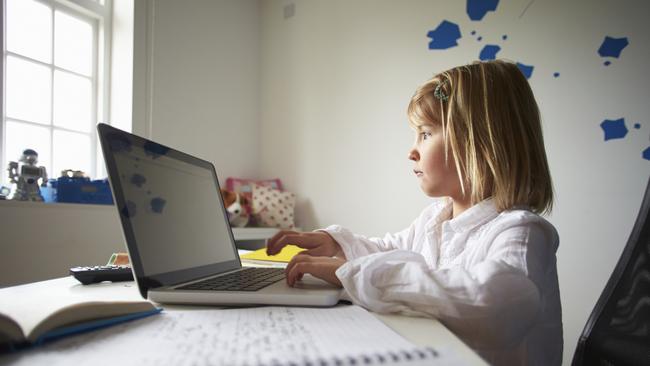‘Internet more toxic than ever’: huge spikes in abuse, sextortion
With alarming spikes in cyber abuse, sextortion schemes, online bullying and the rampant circulation of child sex abuse material since the COVID-19 pandemic the internet is a more “toxic place” than ever. This is what you need to know.

U on Sunday
Don't miss out on the headlines from U on Sunday. Followed categories will be added to My News.
Australia’s eSafety Commissioner has warned the internet is a more “toxic place” than ever amid alarming spikes in cyber abuse, sextortion schemes, online bullying and the rampant circulation of child sex abuse material since the COVID-19 pandemic began.
Commissioner Julie Inman Grant said the agency had experienced extraordinary spikes in complaints since March, including a 172 per cent increase in image-based abuse reports, a 123 per cent increase in illegal and harmful content, a 49 per cent increase in adult cyber abuse and a 32 per cent increase in youth-based cyber-bullying.
Ms Inman Grant said her office feared this was now “the new normal” and had begun a hiring spree for extra investigators to help cope with demand.
And while some of these spikes can be attributed to obvious factors such as people spending more time online including kids with less supervision, Ms Inman Grant said there were also much deeper issues including the major social networks losing control of their moderation and perpetrators of abuse desperately clinging to control during uncertain times.
“We’re definitely seeing people lashing out much more on social media,” she said.
“There’s a lot more polarisation and not just brought about by the US election, the velocity or the speed of targeted online abuse that we’re seeing is much faster, much higher and it’s co-ordinated.
“I’ve never seen the internet be such a toxic place and there are a lot of complex drivers behind that.”

Ms Inman Grant said while the spikes in reporting could be attributed to trends such as people spending more time online and kids being under less supervision, there was also something deeper going on.
She said the major social media sites had “lost control” of their moderation systems which relied on a mix of artificial intelligence and also outsourced work to third parties in developing nations in places where COVID had hit hard.
“So they’re kind of this contract workforce that are forced to essentially look at horrendous content all day… (including) the pro-terrorist content and the child sexual abuse material,” she said.
Ms Inman Grant said offices such as eSafety had vast support systems in place to take care of staff investigating and viewing such material such that it meant their staff were largely unable to work from home during the pandemic, unlike many of these third party moderators based in developing countries.
“This huge content moderation workforce can’t go into work so the companies have kind of lost control because they’re using AI and other sorts of technology tools to kind of surface some of this but they’re still very imperfect,” she said.
“There’s no company I’m aware of that will look at this content and not have a degree of human moderation because the technology and the machines just aren’t trained well enough to pick all of it up.”

The commissioner there had been higher levels of perpetration of domestic violence and child sex abuse that experts believed stemmed from the loss of control caused by the coronavirus and the associated restrictions.
“…because when perpetrators or people feel helpless, when they feel a sense of fear or uncertainty or doubt they tend to act out and establish more control by abusing others,” she said.
“That’s their way of asserting control.
“So I think there are some other subtle, societal and psychological factors causing this too.”
Ms Inman Grant said people needed to look beyond the numbers, especially in relation to domestic violence with some data released saying the predicted spike in DV during the coronavirus lockdown never eventuated.
“I think that’s because women and their children experiencing domestic violence are trapped in with the perpetrators, they’re being watched all the time, they can’t pick up the phone and call 1800 RESPECT,” she said.
“Interestingly we’ve seen a doubling of website traffic to website our e-safety women which is the platform we use for women experiencing domestic violence.”
The commissioner said largest reporting spikes since March related to image based abuse – the non-consensual sharing of intimate images.
Over the Easter long weekend alone there was a 600 per cent spike in image based abused reports due to a viral sextortion scheme in which hackers threatened to share intimate images.
Ms Inman Grant said there has been a 172 per cent increase from March to September compared to the same time last year and while those figures were still “highly elevated” they were starting to plateau.

“When people are physically isolated from their loved ones whether their loved ones may be trapped overseas or interstate, people are increasingly turning towards digital intimacy tools and this is probably situation of sexting gone wrong. So these are being on shared,” she said.
Disturbingly, there has also been a 123 per cent increase in reports of illegal and harmful content which is largely made up of child sexual abuse material.
“This is a consistent trend that’s being seen around the global, increases in child sexual exploitation online,” Mr Grant said.
“Our investigators see terrible, terrible things, what we call coerced self-produced child sexual abuse material so children who are groomed online and then are asked remotely to commit sex acts either in the privacy or their bedrooms or bathrooms.
“In so many of these videos you can hear their parent’s voices in the next room.”
The commissioner urged parents to take an active role in their children’s online activity.
“This can happen right under parents’ noses so we do encourage the more your kids are in open areas of the home,” she said.
“Keep engaged in your kids online lives by co-viewing and co-playing and kind of like we do with sport, when we kick a ball with our kids.”
Ms Inman Grant said while the spikes were beginning to plateau in some areas, this elevated level of online abuse was likely to be the new normal.
“Technology can be used as a tool or it can be used as a weapon so we obviously want to boost the benefits and the utility and minimise the risks and the weaponisation of the technology,” she said.
“But what we have seen is that the internet has become an essential utility during this period so we have to look at benefits there.
“Where would we be if isolated and in lock down without technology being a tool for us to continue working, continue learning, to entertain and to reduce isolation?”




